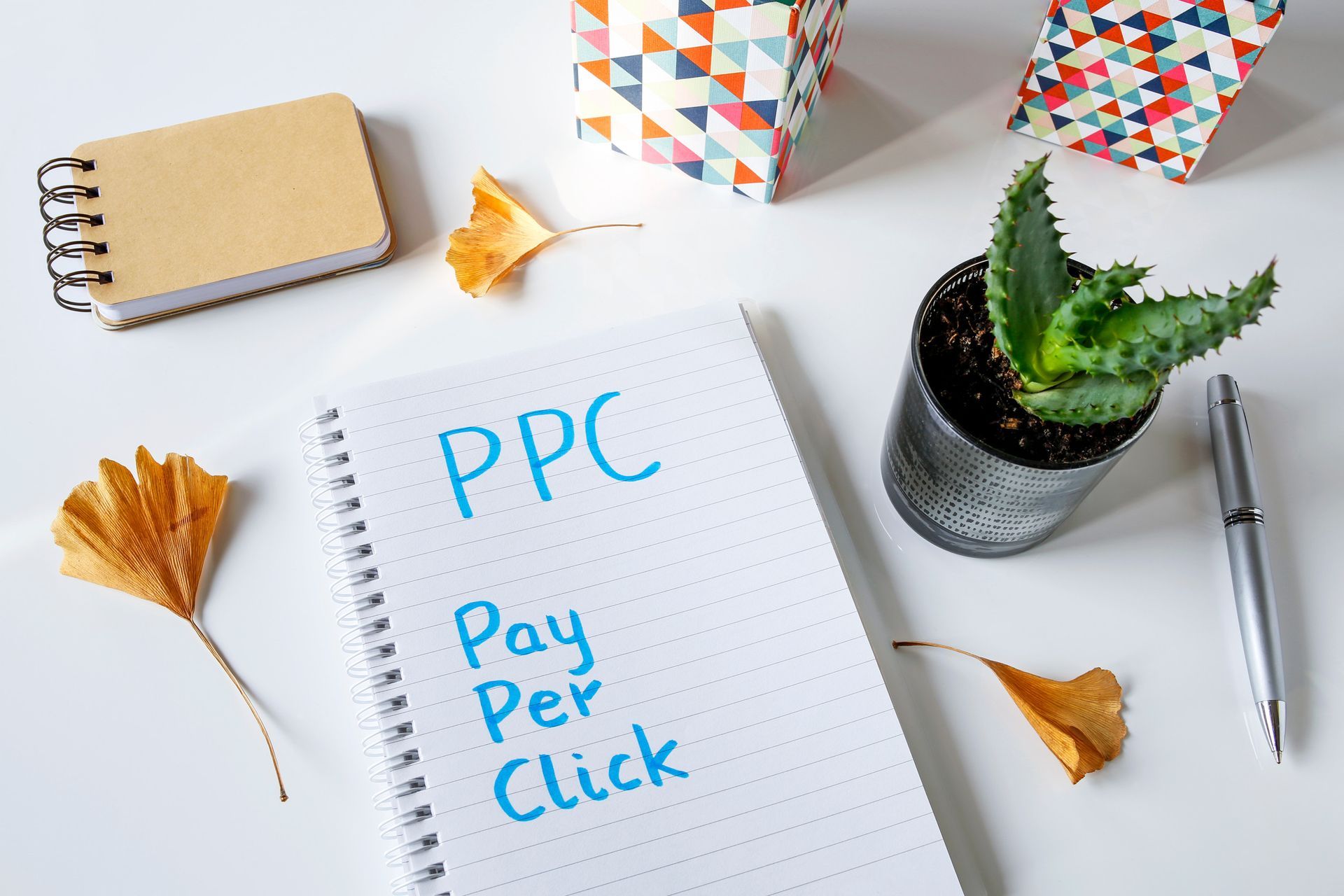PPC 101: A Complete Guide to PPC Marketing Basics for Small Businesses
Pay-per-click (PPC) marketing has become an essential tool for businesses looking to increase traffic, generate leads, and boost their bottom line. But for small businesses, navigating the world of PPC marketing can feel overwhelming. Where do you start? How do you make sure your investment pays off?
This guide will break down PPC marketing into manageable pieces, helping you understand its value and how to implement it effectively for your small business. By the end, you'll have all the tools you need to create powerful PPC campaigns that drive results.
Introduction to PPC Marketing
PPC marketing is an online advertising model where advertisers pay a fee each time their ad is clicked. Think of it like a faster, paid alternative to earning traffic organically. Platforms such as Google Ads, Microsoft Ads, and social media channels like Facebook serve as major PPC hubs, connecting businesses to targeted audiences.
Why PPC for small businesses?
- You only pay for actual clicks, not impressions.
- It delivers fast results compared to organic SEO efforts.
- You can precisely target your ideal audience by location, interests, demographics, and search intent.
PPC marketing offers small businesses the ability to compete with larger players by providing measurable, scalable, and cost-effective advertising solutions. Now, let's take a closer look at how it works.
Understanding the PPC Ecosystem
To succeed with PPC, it’s crucial to understand its ecosystem. Here's a quick breakdown:
- Ad Platforms: Major platforms include Google Ads, Bing Ads, Facebook Ads, and YouTube. Each has unique attributes, but Google Ads dominates due to its vast reach and versatility with search and display networks.
- Auction Model: PPC operates on a competitive auction system. Advertisers bid on keywords, and ad placement depends on their bid and ad quality (known as Quality Score in Google Ads).
- Components of a PPC Ad
- Headline: Grabs attention and makes the target audience want to click.
- Description: Explains how the product/service solves a problem.
- URL: Leads users to a landing page designed to convert clicks into actions.
By understanding these elements, you’ll be better equipped to manage your campaigns with clear objectives and expectations.
Setting Goals and Objectives
Before you launch a campaign, define what you want to achieve. Here are some common PPC goals for small businesses:
- Increase Website Traffic: Direct potential customers to your site to learn more about your products or services.
- Generate Leads: Encourage users to fill out a form, book a call, or sign up for a newsletter.
- Drive Sales: Sell products directly through your website or encourage in-store visits.
- Build Brand Awareness: Boost visibility among your target customer base.
Setting specific, measurable goals allows you to track progress and calculate ROI effectively.
Keyword Research: The Foundation of PPC
Keywords are the backbone of PPC. Effective keyword research identifies the terms your target audience is searching for. Here's how to find the best keywords for your campaigns:
- Use Tools: Take advantage of tools like Google Keyword Planner, SEMrush, and Ahrefs to discover relevant terms and assess their search volume.
- Focus on Long-Tail Keywords: Long phrases such as "best running shoes for beginners" often have lower competition and higher intent compared to generic keywords like "shoes."
- Analyze Competitors: Study what terms your competitors rank for to uncover opportunities.
Pro Tip: Monitor your keywords regularly. Trends change, and staying current ensures your campaigns remain effective.
Creating Effective Ad Campaigns
An engaging ad can make all the difference in the success of your PPC campaigns. Here’s how to create ads that convert:
- Write Attention-Grabbing Headlines: Example: “Struggling to Rank High? Try Our SEO Services Today!”
- Include a Call to Action (CTA): Encourage users to take the next step (e.g., "Sign Up," "Learn More," or "Get a Free Quote”).
- Leverage Ad Extensions: Expand your ad with additional links, location info, or a phone number for higher visibility.
Test and tweak your campaigns continuously to find combinations that generate maximum results.
Landing Page Optimization
Your landing page is where clicks turn into conversions. A poorly optimized page can sink even the best PPC campaigns. Make sure your landing page is:
- Relevant: Match the content to the ad promise. If your ad promotes "Free Web Accessibility Checker," ensure the landing page delivers it.
- Clean: Avoid clutter and focus on a clear message with one primary CTA.
- Fast: Slow load times drive visitors away. Use tools like Google PageSpeed Insights to optimize performance.
Remember, the smoother the user experience, the higher the conversion rates.
Tracking, Analytics, and Reporting
You can’t improve what you can’t measure. Use these tools to monitor your PPC campaigns and refine them over time:
- Google Analytics: Track user behavior, bounce rates, and goal completions on your site.
- Platform-Specific Reporting: Use Google Ads or Facebook Ads dashboards to monitor clicks, impressions, and conversions in real time.
- A/B Testing: Experiment with different ad headlines, descriptions, or CTAs to identify what resonates most with your audience.
Review performance reports regularly to identify areas for improvement and opportunities to scale.
Budgeting for PPC Campaigns
Start small, especially if you’re new to PPC. Allocate enough budget to gather meaningful data, then refine based on performance. Key tips:
- Set Daily Limits: Avoid overspending by setting maximum daily ad spends.
- Prioritize High-ROI Keywords: Focus spending on keywords that generate the best conversions.
- Reallocate and Adjust: Pause low-performing campaigns and reallocate funds to top performers.
PPC offers flexibility, allowing you to scale as you get more confident and see better outcomes.
Maximize Success with PPC in Your Small Business
PPC marketing is more than just running ads; it’s about creating a comprehensive system that drives your business goals. Now that you understand the basics of PPC, you can start building campaigns that bring traffic, leads, and sales to your small business.
Need help getting started? Digital Dreamscape Marketing specializes in customized PPC campaigns that deliver instant results to businesses like yours.
From keyword research to campaign management, we’ve got you covered.
Schedule a FREE consultation with our experts today and watch your business grow.
Happy advertising!








![How to Set Up and Optimize Google Business Profile in 5 Minutes [2024]](https://lirp.cdn-website.com/0461b649/dms3rep/multi/opt/103417557_m_normal_none-1920w.jpg)

